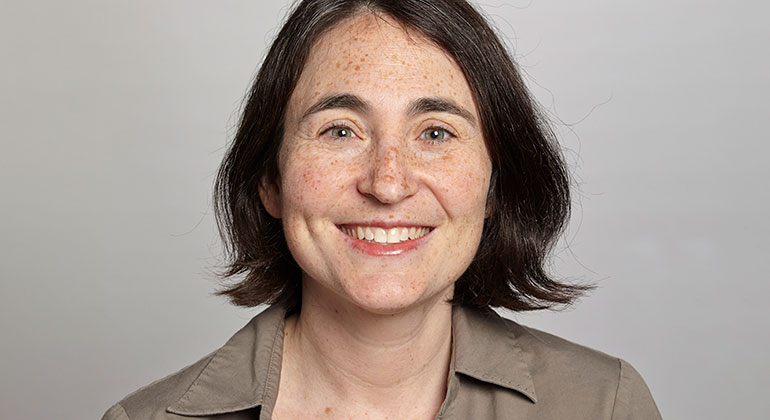Hospice Use Linked to Fewer Depressive Symptoms for Surviving Spouses
Spouses of patients receiving hospice for three or more days more frequently reported reduced depression symptoms, compared to surviving spouses of patients who did not receive hospice, according to a study led by researchers at the Icahn School of Medicine at Mount Sinai published online today in JAMA Internal Medicine.
This is the first national study to examine depressive symptoms as an outcome for spouses of people with all types of serious illnesses that used hospice care, which is designed to improve quality of life as opposed to offering “curative” disease treatments. Until now, studies demonstrating the benefits of hospice use on caregivers have been largely limited to cancer patients and their families, but hospice use has increased among those with other life-limiting illnesses. Currently, forty-five percent of terminally ill patients in the U.S. die while receiving hospice care – an increase of more than 20 percent over the past decade.
After matching the sample of hospice users to a similar group that did not receive hospice, the research team found that improvement in depressive symptoms was more common among those who had used hospice, a benefit that was even more pronounced a year after a spouse’s death. It is unknown which specific aspects of hospice care are associated with improved symptoms for spouses.
“We know hospice provides high quality care to patients, but now we’re also seeing a benefit for spouses,” said Katherine Ornstein, PhD, MPH, Assistant Professor of Geriatrics and Palliative Medicine at the Icahn School of Medicine at Mount Sinai and lead author of the study. “If we want to understand the impact of hospice care, we should consider the potential benefit not just to the patient, but to the caregiver, and perhaps, the entire family and social network. We need to remember that care near the end of life affects not only patients, but also their loved ones.”
Researchers analyzed data from 1,016 deceased patients and their surviving spouses using the Health and Retirement Study (HRS), a national sample of adults over age 50 linked to Medicare claims. Surviving spouses were then followed through bereavement up to two years after death. Hospice services included medical services, symptom management, spiritual counseling, social services and bereavement counseling delivered by an interdisciplinary team of professionals for patients with a prognosis of six months or less to live and who agree to forego curative treatments.
“Although our research suggests that hospice may help alleviate depression symptoms among some spouses, we also found that the majority of bereaved spouses have increased symptoms of depression overall compared to earlier time points,” said Amy Kelley, MD, Assistant Professor of Geriatrics and Palliative Medicine at the Icahn School of Medicine, and senior author of the study. “Additional support is needed for families and caregivers throughout the often long course of serious illness. We need to promote the high quality caregiver support and bereavement services offered in hospice and expand access to palliative care for people who are not hospice eligible.”
The study was supported by the National Institute on Aging, the National Palliative Care Research Center, the American Federation for Aging Research, and the U.S. Department of Veterans Affairs. The Health and Retirement Study (HRS), which provided the study’s data, is sponsored by the National Institute on Aging.
About the Mount Sinai Health System
Mount Sinai Health System is one of the largest academic medical systems in the New York metro area, with 48,000 employees working across seven hospitals, more than 400 outpatient practices, more than 600 research and clinical labs, a school of nursing, and a leading school of medicine and graduate education. Mount Sinai advances health for all people, everywhere, by taking on the most complex health care challenges of our time—discovering and applying new scientific learning and knowledge; developing safer, more effective treatments; educating the next generation of medical leaders and innovators; and supporting local communities by delivering high-quality care to all who need it.
Through the integration of its hospitals, labs, and schools, Mount Sinai offers comprehensive health care solutions from birth through geriatrics, leveraging innovative approaches such as artificial intelligence and informatics while keeping patients’ medical and emotional needs at the center of all treatment. The Health System includes approximately 9,000 primary and specialty care physicians and 10 free-standing joint-venture centers throughout the five boroughs of New York City, Westchester, Long Island, and Florida. Hospitals within the System are consistently ranked by Newsweek’s® “The World’s Best Smart Hospitals, Best in State Hospitals, World Best Hospitals and Best Specialty Hospitals” and by U.S. News & World Report's® “Best Hospitals” and “Best Children’s Hospitals.” The Mount Sinai Hospital is on the U.S. News & World Report® “Best Hospitals” Honor Roll for 2025-2026.
For more information, visit https://www.mountsinai.org or find Mount Sinai on Facebook, Instagram, LinkedIn, X, and YouTube.
